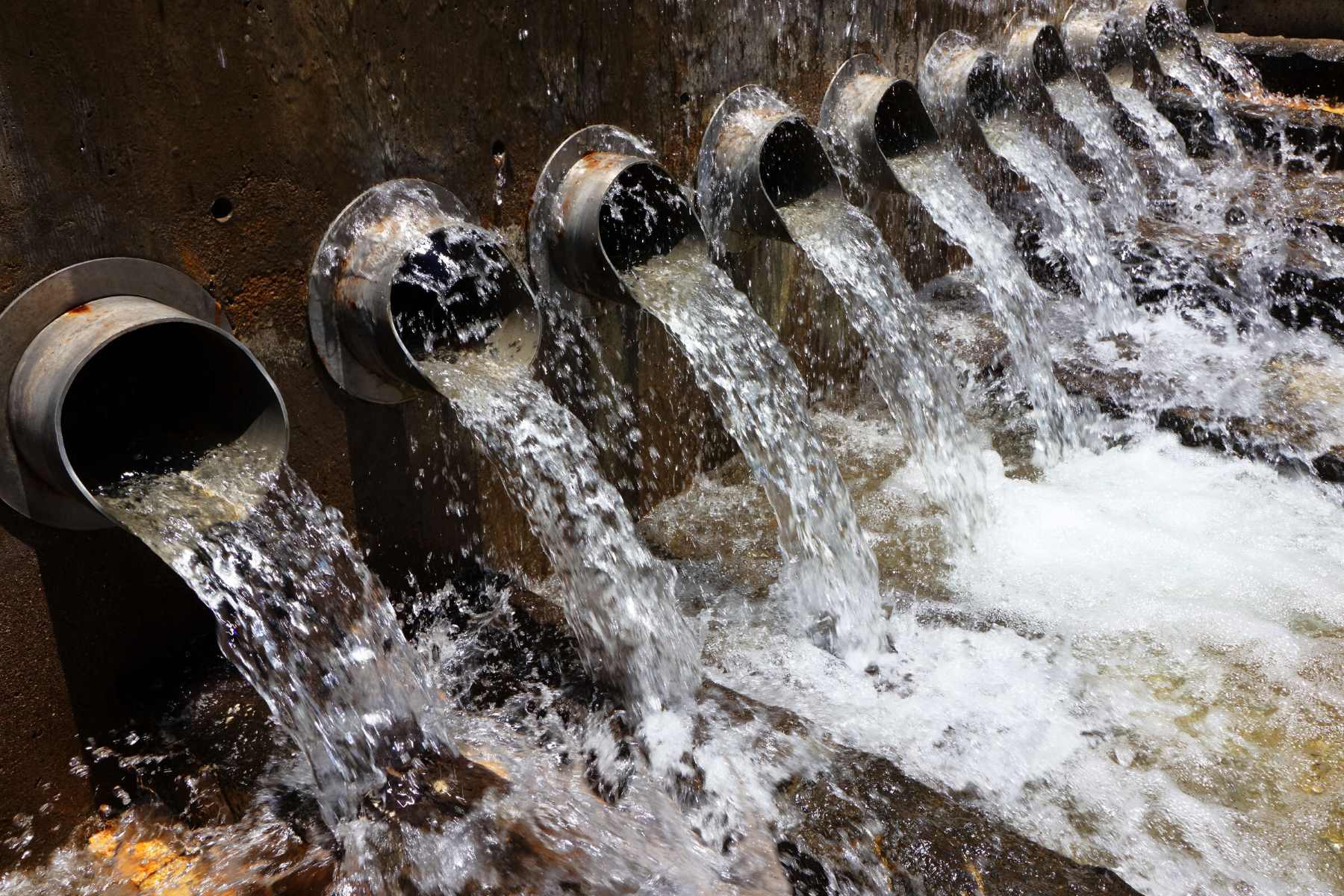
Water is a precious resource that sustains all forms of life on Earth. However, it is also a resource that is rapidly being depleted due to various factors, including human activities. One major issue that threatens our water supply is water waste. In many parts of the world, water is wasted on a daily basis, leading to severe consequences for both the environment and our future generations.
In this article, we will explore 18 eye-opening water waste facts that highlight the magnitude of the problem. From the staggering amount of water wasted in households to the devastating effects of industrial water waste, these facts will shed light on the urgent need for water conservation. By understanding the extent of water waste, we can take steps toward more sustainable water management practices and ensure the availability of this vital resource for years to come.
Key Takeaways:
- Don’t let water go down the drain! Simple changes like fixing leaks and using water-saving appliances can save thousands of gallons each year. Let’s conserve water and protect our planet!
- From shorter showers to rainwater harvesting, small actions can make a big impact on water conservation. Let’s work together to save water for a sustainable future!
Wasting Time in the Shower
Did you know that taking long showers can waste a significant amount of water? If you spend just 5 minutes longer in the shower each day, that adds up to approximately 2,000 gallons of wasted water per year!
Leaky Faucets
A dripping faucet may not seem like a big deal, but it can waste up to 20 gallons of water per day. That’s equivalent to over 7,000 gallons wasted in a year! Remember to fix any leaks promptly to conserve water.
Overwatering Plants
While we may think we’re helping our plants by giving them plenty of water, overwatering can actually harm them. In fact, over 50% of residential water is used for outdoor purposes, with a significant portion being wasted due to excessive watering.
Running Toilets
A running toilet is not only annoying but also wasteful. A leaky flapper valve or faulty fill valve can waste up to 200 gallons of water per day! Regularly check your toilet to ensure it is functioning properly.
Leaving the Tap Running
Leaving the tap running while you brush your teeth can waste up to 4 gallons of water per minute. Simply turning off the tap while you brush can save a significant amount of water over time.
Inefficient Washing Machines
Older, inefficient washing machines can use up to 40 gallons of water per load. Consider upgrading to a high-efficiency machine, which uses less water and energy, helping you save both resources and money.
Neglected Pool Maintenance
Improper pool maintenance can lead to water waste. Evaporation, leaks, and overfilling can all contribute to unnecessary water loss. Regularly monitor your pool’s water level and address any maintenance issues promptly.
Ignoring Irrigation Systems
Misaligned sprinkler heads, broken pipes, and malfunctioning timers can all lead to water waste in irrigation systems. Regularly inspect and maintain your system to ensure it is operating efficiently.
Excessive Car Washing
Washing your car at home can waste a significant amount of water. Consider using a car wash facility that recycles water or using a bucket and sponge instead to minimize water usage.
Rinsing Dishes Before Dishwashing
Pre-rinsing dishes before loading them into the dishwasher can waste water unnecessarily. Most modern dishwashers are designed to remove food particles, so scraping the dishes clean instead of rinsing is sufficient.
Unaddressed Pipe Leaks
Leaking pipes can waste thousands of gallons of water per year, contributing to water waste and higher water bills. Regularly inspect your plumbing system for any leaks and promptly repair them.
Overusing the Garbage Disposal
Using the garbage disposal excessively can require more water to operate. Consider composting food waste instead to reduce water usage and promote eco-friendly practices.
Inefficient Outdoor Sprinklers
Traditional sprinklers can lead to water waste due to overspray, evaporation, and ineffective targeting. Consider using more efficient sprinkler systems or opting for water-conserving alternatives like drip irrigation.
Wasting Water in Restaurants
Restaurants can contribute to water waste through practices such as leaving taps running, overfilling glasses of water, and excessive dishwashing. Encouraging water conservation measures in restaurants can help reduce overall water waste.
Excessive Bathwater Usage
Filling a bathtub requires a large amount of water. Consider taking shorter showers or using a shower instead to reduce water consumption when bathing.
Failing to Capture Rainwater
Rainwater harvesting is a sustainable practice that can help reduce water waste. Installing rain barrels or cisterns to collect rainwater can be used for various purposes such as watering plants or cleaning.
Watering Lawns during the Day
Watering lawns during the hottest part of the day can lead to excessive evaporation, wasting water in the process. It is best to water early in the morning or late in the evening when temperatures are cooler.
Ignoring Water-saving Fixtures
Upgrading to water-saving fixtures, such as low-flow showerheads and faucets, can significantly reduce water waste without compromising daily convenience. These fixtures are designed to conserve water while maintaining functionality.
By being mindful of these 18 water waste facts, we can all play a part in conserving this precious resource. Together, we can make a difference and ensure a sustainable future for generations to come.
Conclusion
In conclusion, the issue of water waste is a pressing concern that must be addressed urgently. Through the compilation of these 18 water waste facts, it is evident that our current practices are unsustainable and detrimental to the environment.
By understanding the extent of water waste and taking proactive steps to conserve and responsibly manage our water resources, we can make a significant impact on the future of our planet. Whether it’s fixing leaky faucets, using water-efficient appliances, or implementing water-saving practices in our daily lives, every individual has a role to play in reducing water waste.
It is crucial that we raise awareness about the importance of water conservation and advocate for sustainable water management practices at a local, national, and global level. Together, we can create a more water-conscious society and ensure a better future for generations to come.
FAQs
1. Why is water waste a problem?
Water waste is a problem because it depletes finite water resources, puts undue strain on ecosystems, and increases the risk of water scarcity. It also contributes to higher water bills and energy consumption.
2. How does water waste affect the environment?
Water waste can lead to depleted aquatic habitats, loss of biodiversity, and increased pollution. It also exacerbates the effects of climate change by reducing water availability for agriculture and ecosystems.
3. What are some common causes of water waste?
Some common causes of water waste include leaking pipes, inefficient irrigation systems, excessive outdoor watering, and wasteful personal habits such as leaving taps running or taking long showers.
4. How can individuals help reduce water waste?
Individuals can reduce water waste by fixing leaks, using water-efficient appliances, practicing water-saving habits (such as turning off the tap when not in use), and implementing water-wise landscaping techniques.
5. What are the benefits of water conservation?
Water conservation helps to preserve natural ecosystems, reduces the strain on water resources, lowers water bills, reduces energy consumption, and mitigates the impacts of climate change.
After learning about water waste facts, you might be inspired to make some changes around your home. Upgrading your bathroom with stylish and absorbent rugs or mats can help prevent water spillage. For dog owners, investing in a portable water bottle ensures your furry companion stays hydrated during walks without wasting a drop. Gardeners looking to conserve water will appreciate the efficiency of a well-designed watering can. Explore our other articles for more tips on saving water and enhancing your daily life.
Was this page helpful?
Our commitment to delivering trustworthy and engaging content is at the heart of what we do. Each fact on our site is contributed by real users like you, bringing a wealth of diverse insights and information. To ensure the highest standards of accuracy and reliability, our dedicated editors meticulously review each submission. This process guarantees that the facts we share are not only fascinating but also credible. Trust in our commitment to quality and authenticity as you explore and learn with us.


